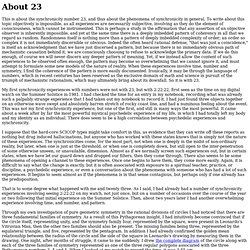

The 50 Scariest Books of All Time. The air is getting crisper, the nights are getting longer, and All Hallow’s Eve draws near.

You know what that means: it’s time to curl up with a book guaranteed to give you the shivers — or at least make you check the locks twice. Here, for your horrifying pleasure, are 50 of the scariest books ever written in the English language, whether horror, nonfiction, or speculative futures you never want to see. One caveat: the list is limited to one book per author, so Stephen King fans will have to expand their horizons a little bit. Check out 50 books that will keep you up all night after the jump, and add any other scary favorites to the list in the comments.
IT, Stephen King All right, let’s get this out of the way up front: Stephen King is the you-know-what of horror, and if there wasn’t this pesky rule about keeping it to one book per author, this list could almost be wholly populated by his terrifying reads. Eight sexy webcomics to read with the door locked. The 5 Most Horrifyingly Wasteful Film Shoots.
Whether you're watching a bunch of environmentally conscious shows during NBC's "Green Week" or taking in cautionary tales like The Day After Tomorrow, it's obvious Hollywood cares about our fragile environment.

Or at least they want us to think they do. When it comes time to getting just the right shot, wiping out a big hunk of ecosystem is considered a small price to pay. For instance ... #5. Apocalypse Now Nuked Acres of Forest As ridiculous film shoots go, few can top Apocalypse Now. "CUT! But then there's the most iconic shot in a film full of iconic shots, the opening scene of the palm trees burning under a storm of napalm as Jim Morrison wails over the top about Oedipus and the transient nature of existence. After all, it's an impressive special effect for 1979. Surprise! That's pretty much it. Getty"Now we'll highlight the tragic reality of unwanted puppies by throwing this sack in the river.
" Then again, this was the 1970s. 10 Modern Must-Read Sci-Fi Masterpieces. Any discussion of science fiction invariably begins and ends with the masters of the genre. Jules Verne, Isaac Asimov, Robert A. Heinlein, Phillip K. Dick, Arthur C. Clarke, Ray Bradbury, H.G. Wells, Frank Herbert, Jerry Pournelle and so on. People didn’t suddenly stop writing science fiction novels in 1980. The Dark Tower (1982 – 2004) Written by: Stephen King King is best known as one of the modern masters of fantasy and horror but The Dark Tower series is as much science fiction as it is anything. Neuromancer (1984) Written by: William Gibson William Gibson created the cyber punk genre with Neuromancer. Ender’s Game (1985) Written by: Orson Scott Card There’s never been anything quite like Ender’s Game, before or since. The Liaden Universe (1988 – 2010) Written by: Sharon Lee and Steve MillerAgent of Change was the first book published (though not the first chronologically) in what would eventually become known as the Liaden Universe.
Hyperion Cantos (1989 – 1997) Jurassic Park (1990) The Twenty Science Fiction Novels that Will Change Your Life. Temporal Anomalies in Popular Time Travel Movies. Popular Science - A Nerd's Guide to Reading. A Brilliant List of Science Books for People Who Want Their Minds Blown. - StumbleUpon. This is about the synchronicity number 23, and thus about the phenomena of synchronicity in general.

To write about this topic objectively is impossible, as all experiences are necessarily subjective, involving as they do the element of consciousness, which cannot be instrumented. This is perhaps a study in the affirmation that any assertion of an objective observer is inherently impossible, and yet at the same time there is a deeply imbedded pattern of coherency in all that we regard as random. Randomness itself is nothing more than a pattern of deeply imbedded complexity of order; an order so complex it is not immediately discernible or obvious. Indeed the often heard rational defense, "that was just a coincidence," is itself an acknowledgment that we have just discerned a pattern, but because there is no immediately obvious path of mechanistic causation behind it, we are consciously choosing to refuse to acknowledge the primary data.
Share Book Recommendations With Your Friends, Join Book Clubs, Answer Trivia.